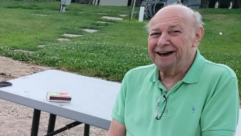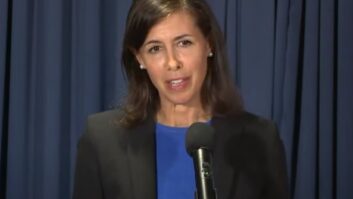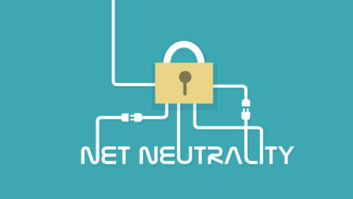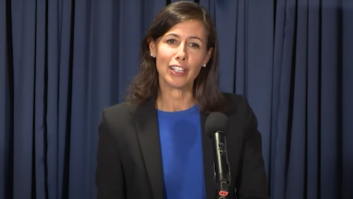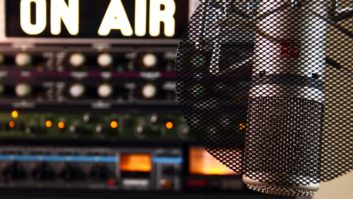The author is membership program director of the National Federation of Community Broadcasters. NFCB commentaries are featured regularly at www.radioworld.com.
This week, the Federal Communications Commission ended net neutrality rules set forth in 2015. Legal challenges are certain. What that all means for community radio is an open question, though one has to appreciate that there is a great deal of worry out there.
The weeks and months before Thursday’s net neutrality vote generated protests, letters, reports and conversations nationwide. Tech firms, consumer advocates and media organizations have expressed fears the internet, upon which business and leisure are becoming more and more dependent, will be expensive for audiences and negatively impact industry. Paired with lifting rules that forbade providers from blocking competitors’ content or prioritizing their own, the outcry seems understandable. Tim Wu remarked to the New York Times that permitting blocking, in particular, is far more radical than existed previously in regulations.
The Daily suggests a pivotal moment for net neutrality was in 2005, when internet service provider Madison River clashed with the voice over internet protocol firm Vonage. Supporters of the VoIP service argued it provided traffic that should be treated like every other online request, while the ISP’s advocates contended it built the infrastructure and could handle traffic as the company wished. That is the crux of this matter. Do you feel the ISP has a right to do so because it is a business, or should it be regarded more as a utility and be closely regulated?

More than a decade after Madison River and Vonage battled it out, such contentions are potent. The young VoIP industry is joined by a plethora of companies, including streaming audio, whose very existence depends on pipelines for content.
It stands to reason that Facebook, Netflix, Snapchat, Spotify and other mega-companies have the resources to upload content to consumers. For audiences themselves and new and struggling media businesses, the answers are not so clear. Groups like Free Press have long argued that ending net neutrality would mean consumers would pay more for streaming services, and content providers would pay more to have their audio, video and livecasting sent via the web. Opponents of net neutrality say online access is not a public utility, and it must be allowed less regulation to innovate. Ultimately, the net neutrality debate comes back to power and trust.
What does it all mean for low-power FM, community radio and other community-based media outlets?
Although nothing is certain, you might guess ISPs possibly raising rates for streaming content, and hosting companies passing costs to content providers like radio, is going to come with some difficulty. Community media in towns across America operates on very tight budgets. Rate hikes could curtail services like streaming from these organizations or, at worst, end them altogether. For radio stations that moved from satellites and hardlines to DSL connections going to their transmitter sites, some new budget math in 2018 is very likely coming up. However, the bigger players, some of which have filed for bankruptcy and are themselves facing rocky days, are sure to see sticker shock as well.
Reporter Freia Nahser, for MediaShift, expressed concern the end of net neutrality means less engagement from audiences. More expensive data plans and more online hurdles mean people just won’t be as plugged in. Because news and civic discourse has shifted online, the potential for disenfranchisement — and the possibility for community radio to meet the challenges — is high.
Among a small school in community radio, less internet seems like a positive thing, because it means people will simply turn on their radios more and discover community media. Such assumptions are a big gamble. The 2017 Coleman Insights report might remind you how few the number of people are who can even identify a local public radio station, let alone an LPFM or other community outlet. People, in truth, tend to go back to what they know and trust. If the listener does not know you already, taking away their net access probably is not going to create a relationship. You need to build affinity first by growing your community radio station’s roots among your region’s diverse neighborhoods.
Before the net neutrality discussion heated up, groups like the Association of Independents in Radio experimented with live events to foster greater local awareness. Melody Kramer is among those to point out how valuable such face-to-face gatherings can be, especially for young people, those new to town and families. Regardless whether your think net neutrality’s demise means a need for more analog happenings, perhaps this instance may give you an opportunity to consider the importance of community engagement and how much your radio station makes relationship building a part of its future.



